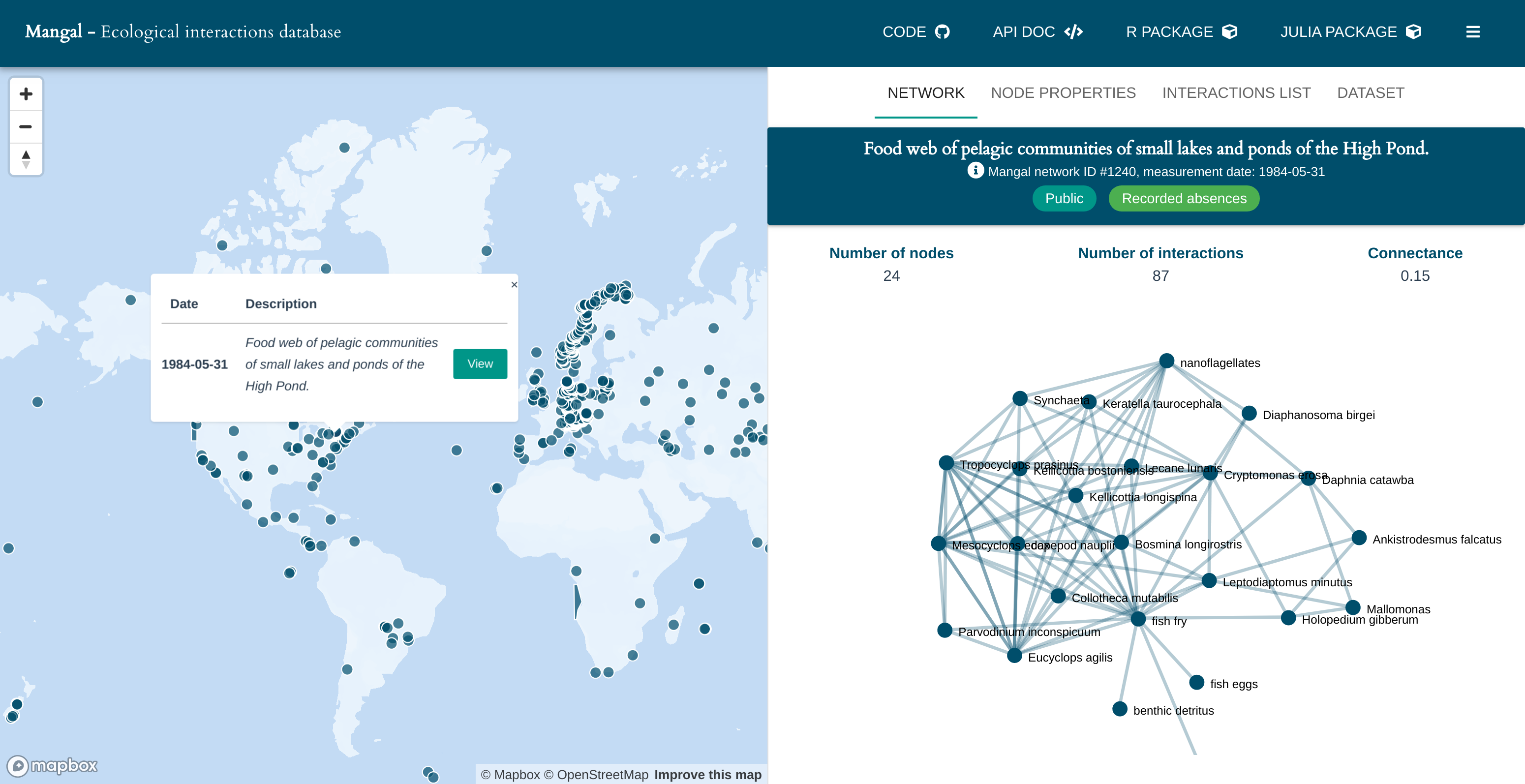
In early September, the version 2.0.0 of rmangal was approved byrOpenSci, four weeks later it made it to CRAN.

In early September, the version 2.0.0 of rmangal was approved byrOpenSci, four weeks later it made it to CRAN.
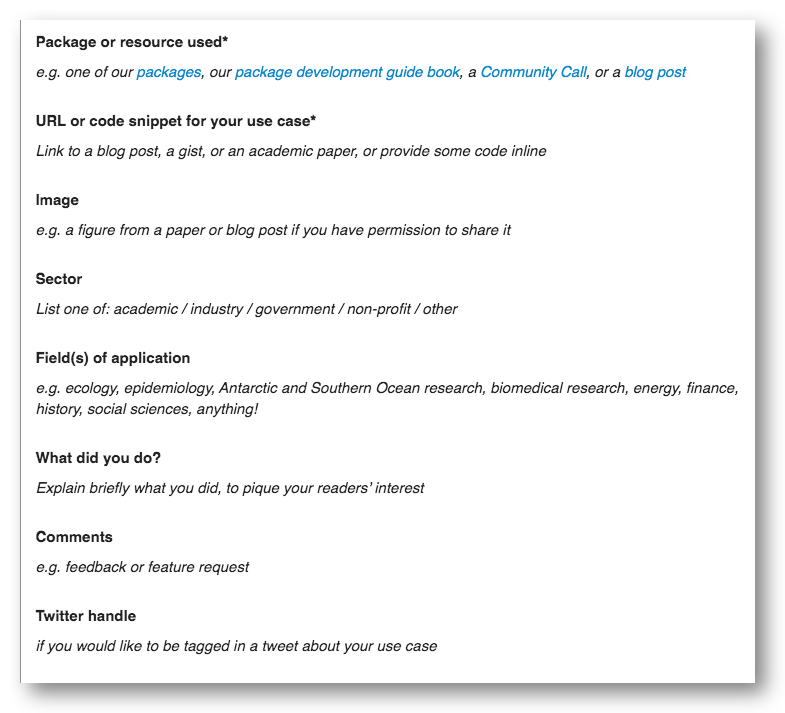
We want to know how you use rOpenSci packages and resources so we can give them, their developers, and your examples more visibility. It’s valuable to both users and developers of a package to see how it has been used “in the wild”. This goes a long way to encouraging people to keep up development knowing there are others who appreciate and build on their work.

The UCSC Xena platform provides an unprecedented resource for public omics data from big projects like The Cancer Genome Atlas (TCGA), however, it is hardfor users to incorporate multiple datasets or data types, integrate the selected data withpopular analysis tools or homebrewed code, and reproduce analysis procedures.

Ambitious workflows in R, such as machine learning analyses, can be difficult to manage. A single round of computation can take several hours to complete, and routine updates to the code and data tend to invalidate hard-earned results. You can enhance the maintainability, hygiene, speed, scale, and reproducibility of such projects with the drake R package.

The grainchanger package provides functionality for data aggregation to a coarser resolution via moving-window or direct methods.Why do we need new methods for data aggregation? As landscape ecologists and macroecologists, we often need to aggregate data in order to harmonise datasets. In doing so, we often lose a lot of information about the spatial structure and environmental heterogeneity of data measured at finer resolution.

Our 1-hour Call on Reproducible Research with R will include three speakers and 20 minutes for Q & A. Ben Marwick will introduce you to a research compendium, which accompanies, enhances, or is a scientific publication providing data, code, and documentation for reproducing a scientific workflow.
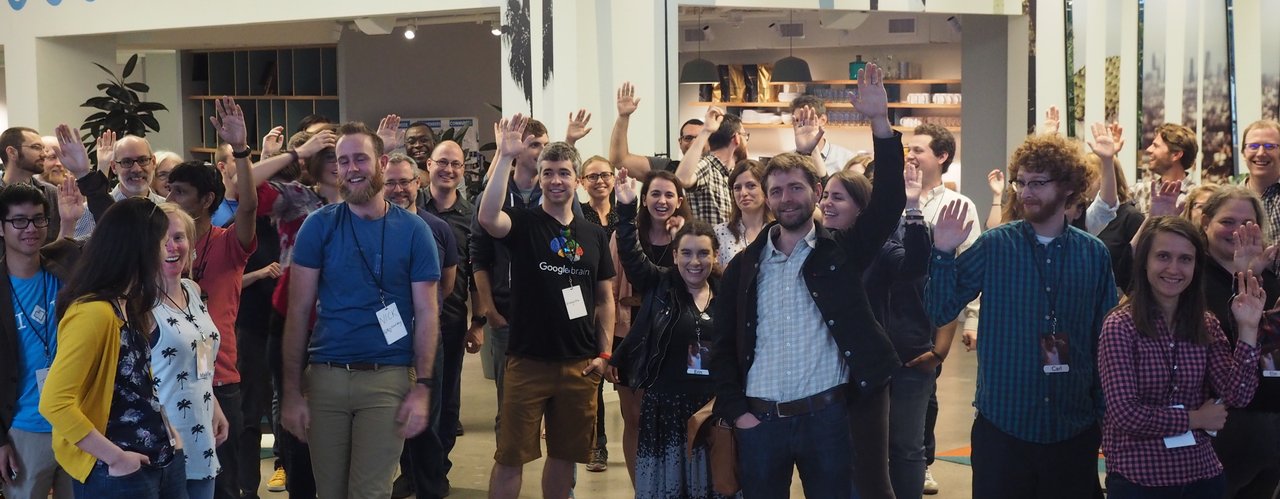
Three members of the rOpenSci team - Scott Chamberlain, Jenny Bryan, and Rich FitzJohn - as well as many community members will give talks at useR!2019. Many other package authors, maintainers, reviewers and unconf participants will be there too. Don’t hesitate to ask them about rOpenSci packages, software peer review, community, or just say hello if you’re looking for a friendly face. We’ve listed their talks for you.

rOpenSci’s community is increasingly international and multilingual. While we have operated primarily in English, we now receive submissions of packages from authors whose primary language is not. As we expand our community in this way, we want to learn from the experience of other organizations. How can we manage our peer-review process and open-source projects to be welcoming to non-native English speakers?
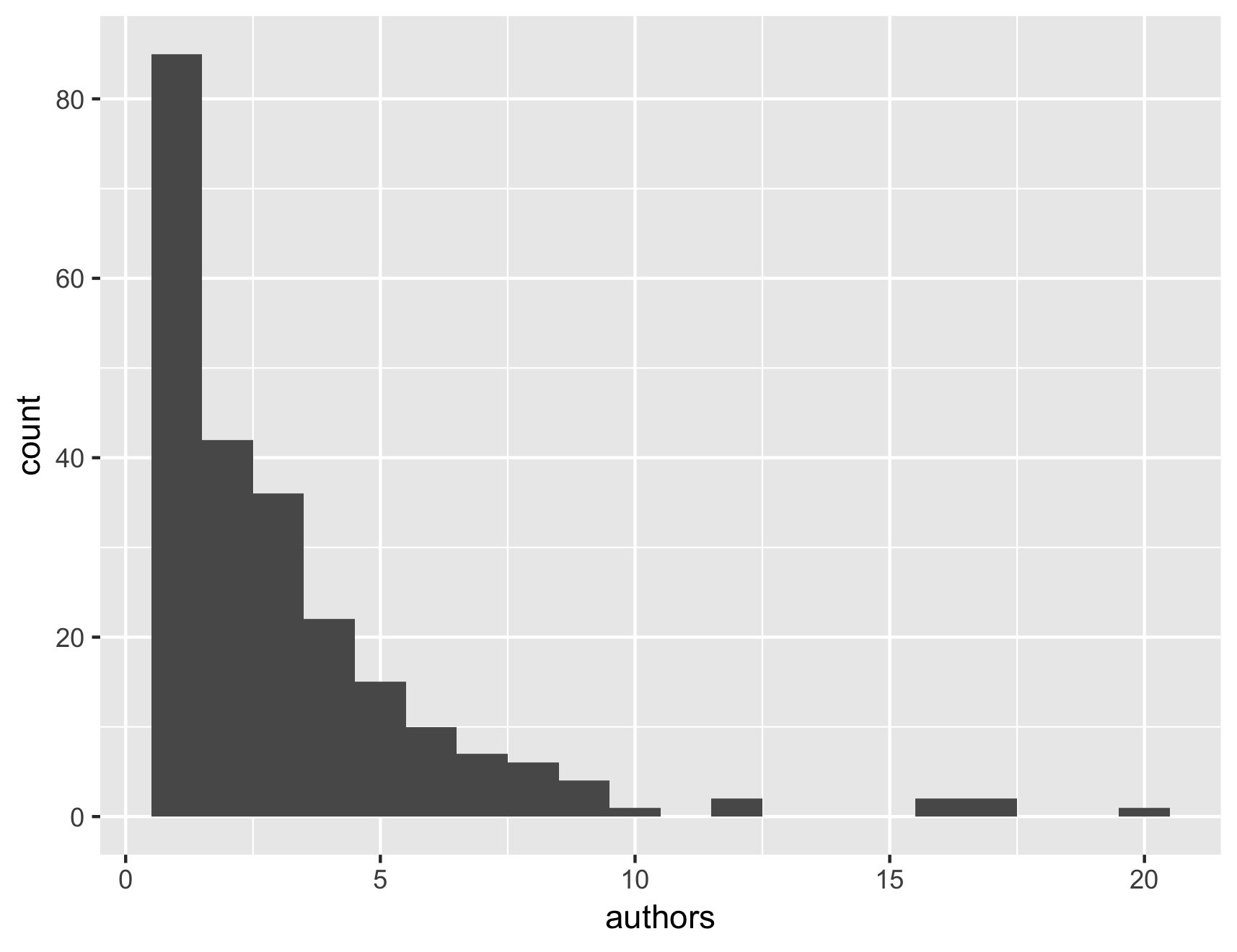
Software is maintained by people. While software can in theory live on indefinitely, to do so requires people. People change jobs, move locations, retire, and unfortunately die sometimes. When a software maintainer can no longer maintain a package, what happens to the software? Because of the fragility of people in software, in an ideal world a piece of software should have as many maintainers as possible.
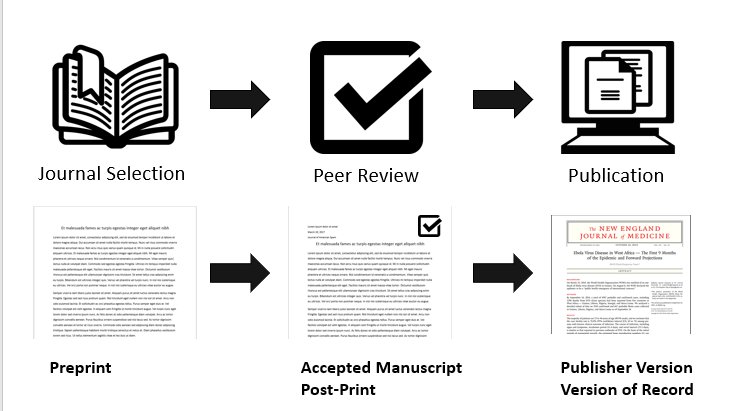
We’ve been following rOpenSci’s work for a long time, and we use several packages on a daily basis for our scientific projects, especially taxize to clean species names, rredlist to extract species IUCN statuses or [treeio](many probs with this post) to work with phylogenetic trees.rOpensci is a perfect incarnation of a vibrant and diverse community where people learn and develop new ideas, especially regarding scientific packages.We’ve also